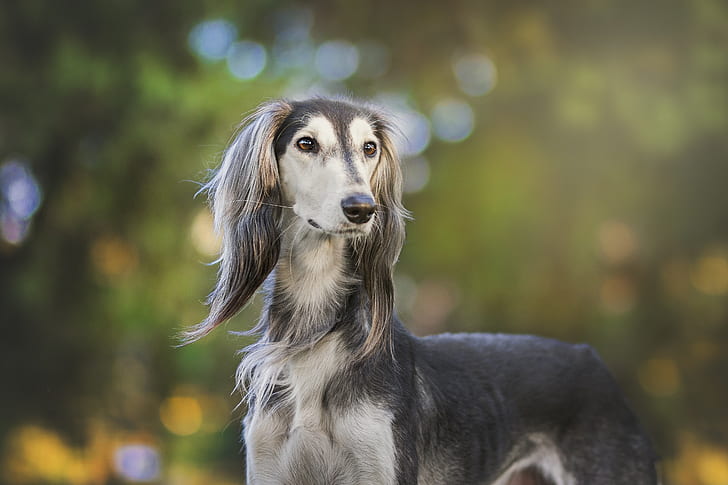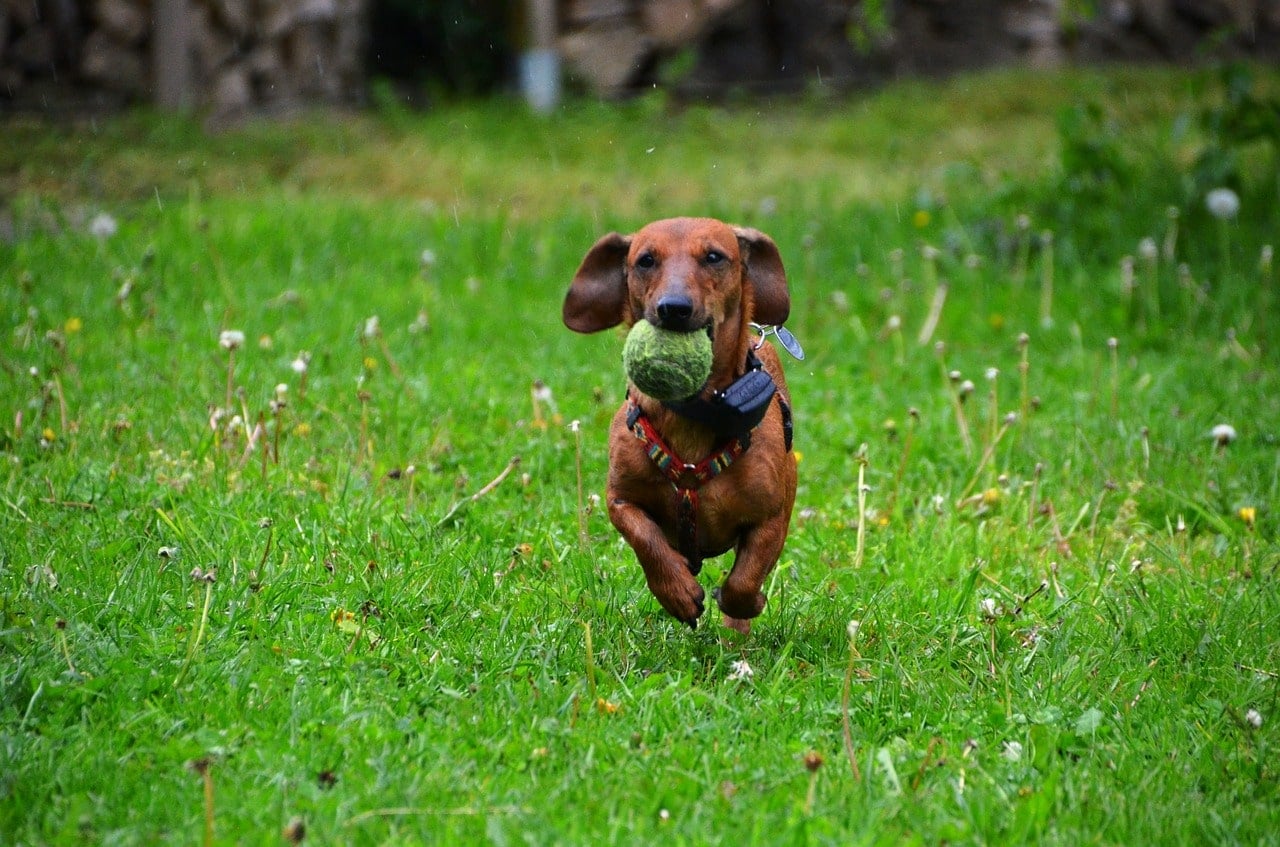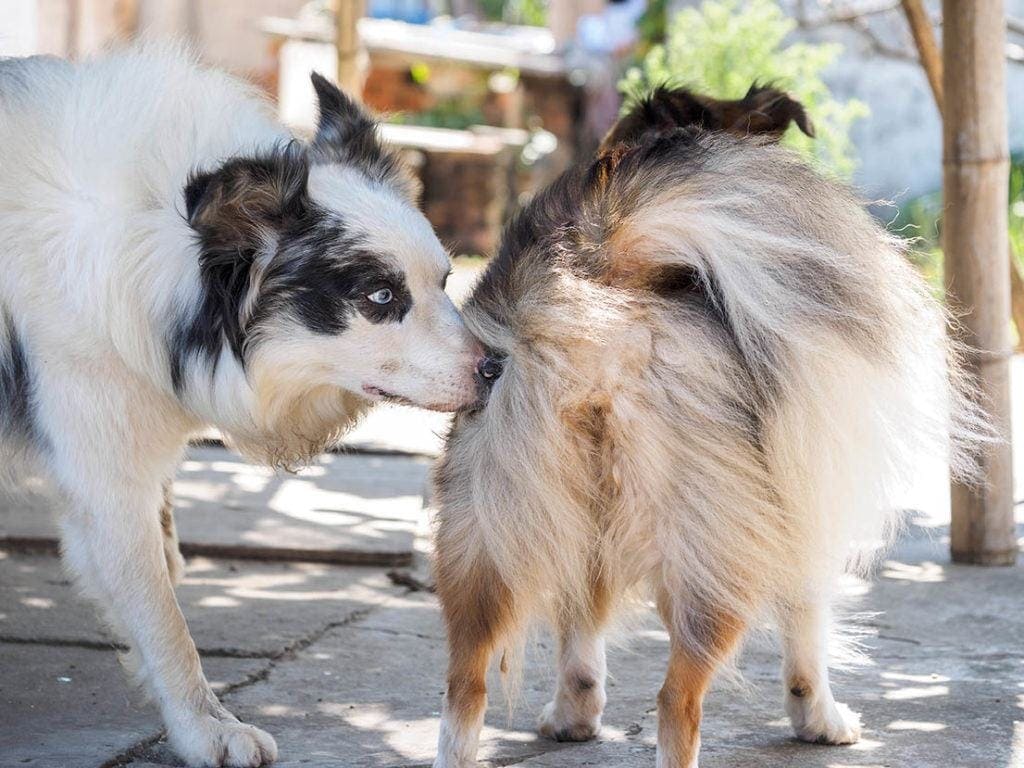Shih Tzu vs Shih Poo: What Is The Difference (With Pictures)
Updated on
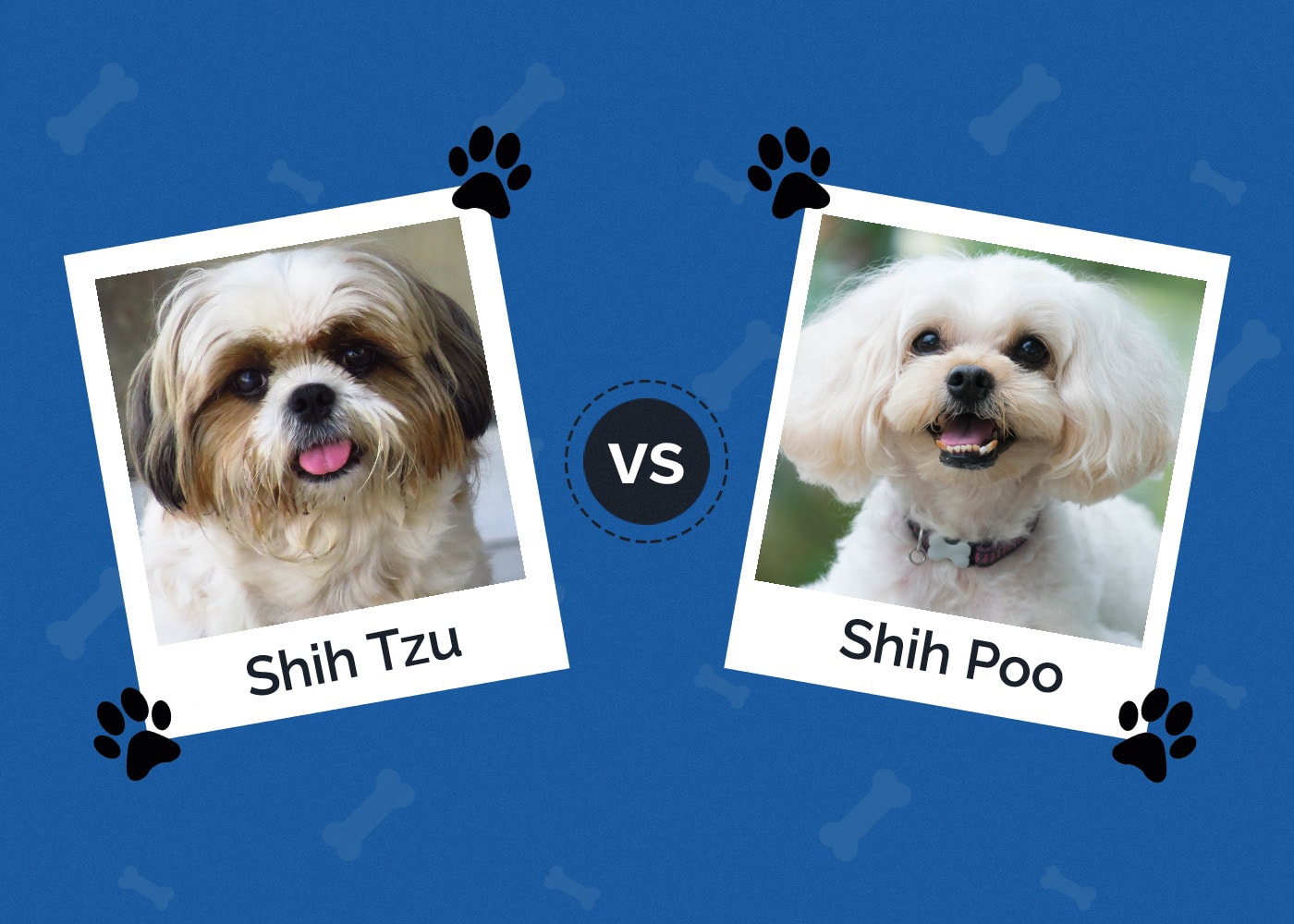
Many people underestimate small dogs, often considering them nothing more than lap dogs, but small dog breeds can be a ton of fun. The Shih Tzu is the perfect example of a small dog with a big personality. These cute pups are known for their affectionate and happy personalities, as well as the long, silky coat they sport. They tend to be personable dogs that function well in a variety of environments, making them suitable for a large number of homes.
In the past few decades, crossbreeding established breeds with Poodles has been all the rage. This has led to a ton of mixed-breed pups, including the Shih Poo. These dogs can have the best of both the Shih Tzu and Poodle breeds, making them lovable and fun dogs. It can be unpredictable what combination of traits you’ll get when crossing breeds like this, though, so it can be hit or miss what kind of dog you’ll end up with.
Let’s take a closer look at the differences between the Shih Tzu and the Shih Poo below to help you determine which one is right for you.
Visual Differences
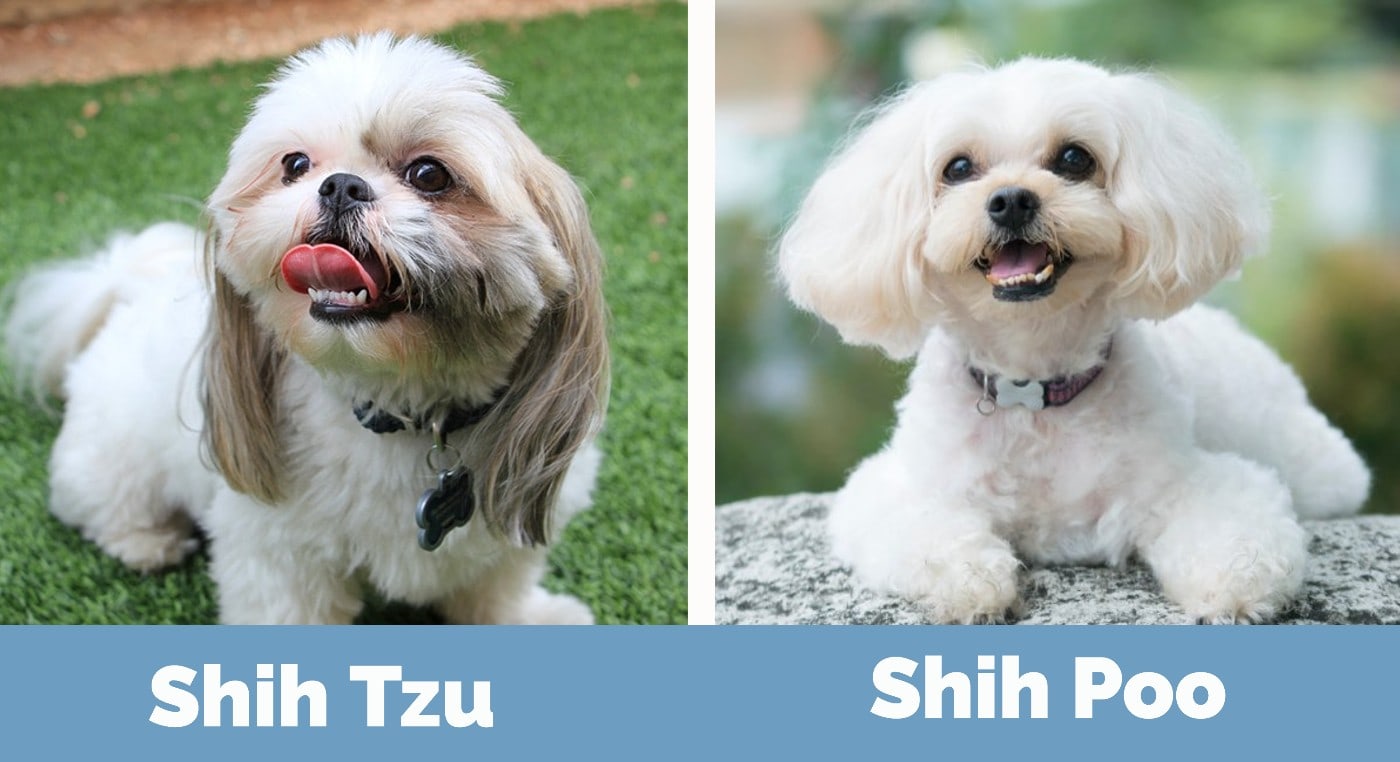
At a Glance
- Average height (adult): 8–11 inches
- Average weight (adult): 9–16 pounds
- Lifespan: 12–16 years
- Exercise: 1 hour a day
- Grooming needs: High
- Family-friendly: Yes
- Other pet-friendly: Yes
- Temperament: Intelligent, social, willful
- Average height (adult): 8–18 inches
- Average weight (adult): 8–18 pounds
- Lifespan: 10–15 years
- Exercise: 1 hour a day
- Grooming needs: High
- Family-friendly: Yes
- Other pet-friendly: Often
- Temperament: Playful, quick-witted, stubborn
Shih Tzu Overview
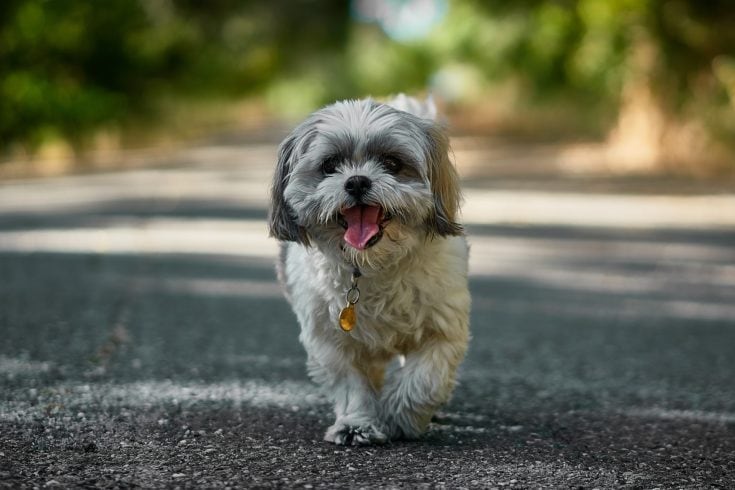
Personality
The Shih Tzu is known for its playful, loving temperament. They tend to love their people, but they are also social dogs with other people and animals. They are not typically grouchy dogs, and their liveliness and big eyes make them irresistible to people of all ages. They can be willful little dogs, so that is something to take into account when considering this breed.
Training
Shih Tzus are highly intelligent dogs, but this can sometimes make training more difficult. They tend to be stubborn pups that are smart enough to manipulate situations. When training a Shih Tzu, it’s important to be gentle but firm with your training and not let your dog outsmart you. Otherwise, you’ll end up with a dog who knows how to get out of training they don’t want to do.
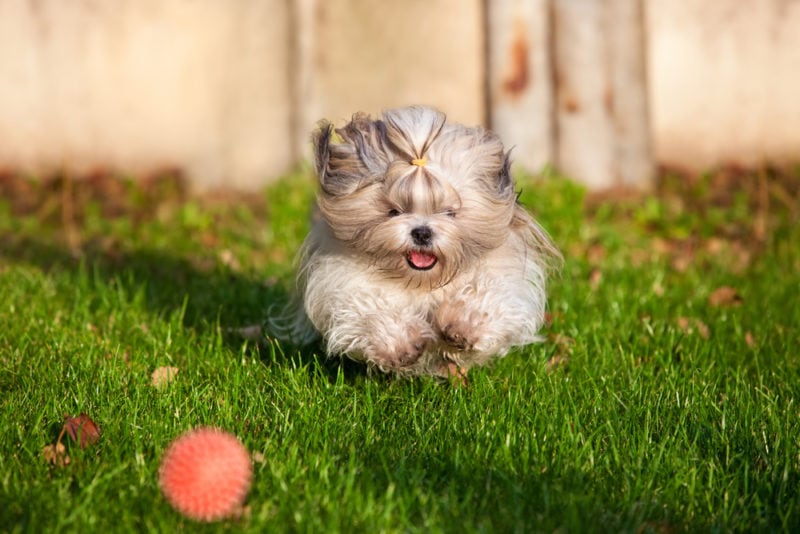
Health & Care
Due to their flat faces, Shih Tzus are prone to a variety of health issues, like dental disease, brachycephalic obstructive airway syndrome, and collapsing trachea. They are also prone to diseases of the eyes, hip and knee dysfunction, intervertebral disc disease, ear infections, allergies and skin infections, and kidney disease.
Purchasing Shih Tzus from reputable breeders who perform health testing on all their dogs prior to breeding and who only breed dogs that will better the breed is the best way to ensure you won’t end up with a sickly dog.
Grooming
As you might expect, the long, silky coat of the Shih Tzu carries high grooming needs with it. Brushing the coat multiple times per week is necessary to prevent mats, and many people find professional grooming services to be a lifesaver with this breed.
Many people cannot keep up with the full natural coat of the Shih Tzu, so trims and shaves are possible to make the coat more manageable. However, it’s ideal to avoid this breed if you don’t feel like you’ll be able to manage the coat’s upkeep.
Suitable for:
Due to their social and loving nature, Shih Tzus are usually good dogs for homes with everyone from small children to elderly people. It is important to ensure children are taught proper handling of the dog to prevent injuries to the dog and children. They make great dogs for homes with other pets, and Shih Tzus often get along well with other animals, including cats, with proper introductions.
Shih Poo Overview
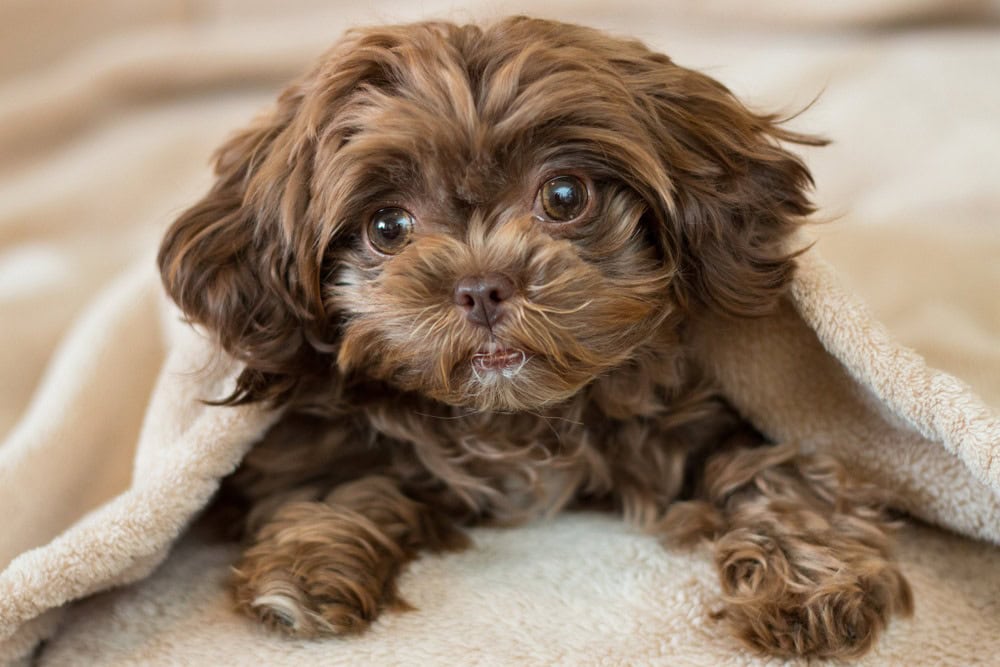
Personality
The Shih Poo is generally a charming dog with plenty of liveliness and happiness. They are usually friendly and social dogs that enjoy the company of lots of people, not just their people. They are attentive pups that are often eager to please.
Since Shih Poos are mixed breed dogs, it is somewhat unpredictable what types of traits your dog may have. They may have the social, affectionate temperament of the Shih Tzu or the loyal and playful temperament of the Poodle.
Training
While they are often eager to please, it’s not uncommon for Shih Poos to acquire the willfulness of their Shih Tzu parent, which can make training more difficult. They tend to be intelligent dogs that are playful, so finding ways to turn training sessions into a game is a good way to maintain a Shih Poo’s attention and succeed in training. Consistency in training and keeping your Shih Poo engaged in training sessions will help you have a well-trained dog.
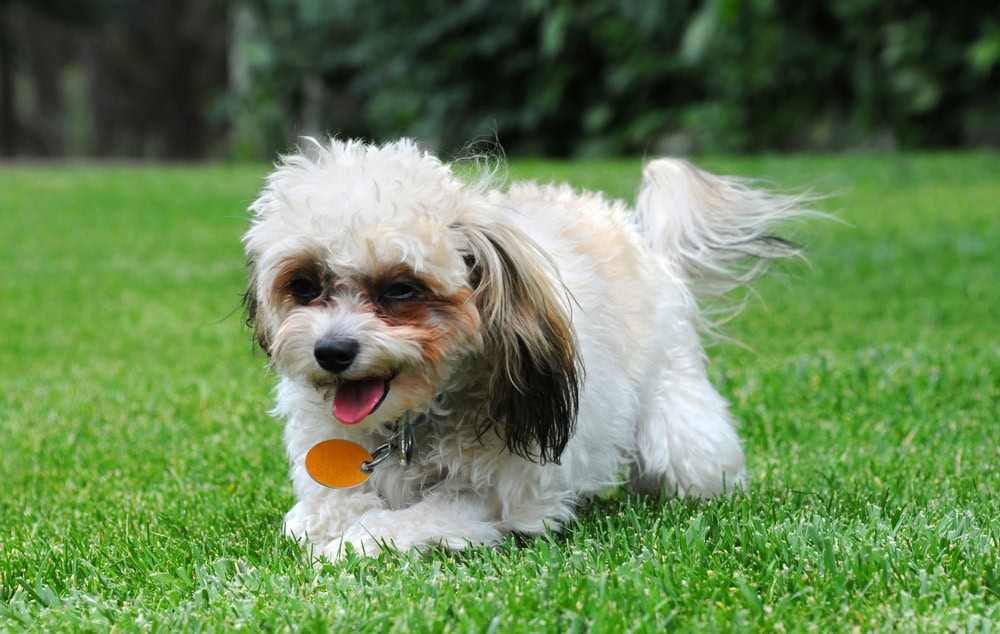
Health & Care
Since Shih Poos are mixed breed dogs, they are prone to the medical conditions that both parent breeds are prone to. It’s also important to understand that many people who breed Shih Poos and other designer mixed-breed dogs are backyard breeders and puppy mills, so it’s extremely important to ensure you only get a Shih Poo from a reputable breeder with fully health-tested dogs.
Shih Poos are prone to developing conditions like eye diseases, allergies and skin issues, knee dysfunction, Addison’s Disease, and Cushing’s Disease.
Grooming
It’s unpredictable what type of coat a Shih Poo will have since they are mixed with two breeds that have very different coats. This can often lead to a difficult coat that is difficult to keep groomed and that is likely to develop mats. Keeping the coat brushed out will help prevent mats, but it’s not uncommon for professional grooming to be required to maintain these difficult coats.
If you aren’t committed to caring for an unpredictable coat type multiple times per week, then a Shih Poo is not a good option for your home.
Suitable for:
Shih Poos are usually good with children and other pets when they are properly introduced. As they age, some Shih Poos may become less tolerant of meeting new children and animals. They may become snippy without proper introductions or handling, so teaching children how to respect the boundaries of the dog is necessary.
Shih Poos have low exercise needs, making them suitable for less active homes, but some daily play and routine grooming are needed.

Which Breed Is Right for You?
While many Shih Poos are sweet and lovable dogs, their temperament and coat are unpredictable due to being a mixture of two opposing coat types and different dog breeds. If you are looking for a more predictable coat, temperament, and health level, then the Shih Tzu is likely the better dog for you.
Both dogs require high grooming commitments, which can make them unsuitable for some people. Shih Tzus and Shih Poos are both typically fun and intelligent dogs that can be relatively easy to train, although training often requires consistency and creativity.
Featured Image Credit: (L) Dienni Portinanni, Unsplash | (R) Lim Tiaw Teong, Shutterstock

